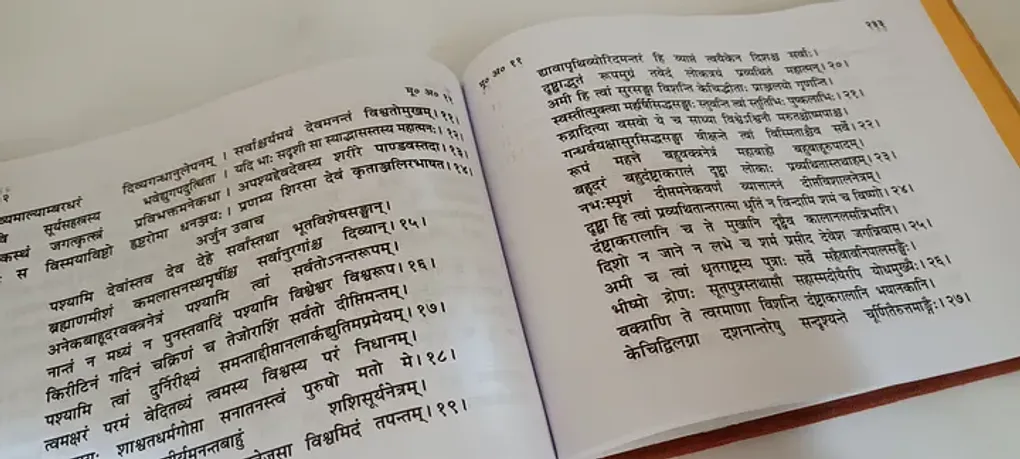
Ways to increase faith — Read Scriptures or listen to stories — Part 2
Books: A growing number of books about Hinduism are published these days; the Hindu scriptures are still being reprinted in English, Hindi, and other Indian languages by long-standing Indian publications such as Gitapress, Chaukhamba Publications, and Motilal Banarsidass Publications; translations of the Hindu scriptures are also being published by international publishing houses such as Penguin; these books are also available as Kindle ebooks and, for audiobook lovers, on Audible.
In Hinduism, sacred texts are highly esteemed. My elders informed me that if I had to read books such as the Ramayana and Bhagawata Purana, I would have to perform a daily ritual that involved first covering the book with a red cloth and using a stand because you cannot keep it on the floor, followed by reciting some mantras and requesting blessings from God before beginning to read the text. I believe that this is necessary in order to comprehend the text and its wisdom. As I mentioned in my earlier post, back in the 1990s, we used to receive books from Gitapress, but these days, I have read Penguin’s English translations of the Mahabharata and Puranas. I still treat books I pick up from Gitapress with reverence, but I no longer do that with books that have recently been published by foreign publishers.
TV: TV became a game changer in spreading stories about God when two series—the Ramayana and the Mahabharata—aired on the National Channel of India, Doordarshan, in 1987. Up until then, the only other sources were books and other films, and third, your grandparents. Many more series followed, chronicling other gods and goddesses. Also, now OTT apps on every network have the old classics like the Ramayana and Mahabharata and even new series on Hindu gods and goddesses.
Podcasts/YouTube: Since the internet has become more popular, audio-visual formats have taken centre stage. A lot of content creators are sharing short, condensed versions of old Hindu stories on these platforms, and accessing these freely is a good way to get interested in Hindu scriptures if the size of the original books intimidates you. However, once you become interested in the stories, you should move quickly to original sources like books.
Some music apps, like Spotify and Kuku FM, also host podcasts that revolve around Hindu religion, like a podcast on the Bhagavad Gita or the Ramayana.
In conclusion, the Bhagavad Gita says this about shashtras, or scriptures:
यः शास्त्रविधिमुत्सृज्य वर्तते कामकारतः ।
न स सिद्धिमवाप्नोति न सुखं न परां गतिम् ॥१६- २३॥One who abandons the process enjoined in the scriptures and acts according to his way does not attain success, nor does he attain the highest position, nor does he get joy.
तस्माच्छास्त्रं प्रमाणं ते कार्याकार्यव्यवस्थितौ ।
ज्ञात्वा शास्त्रविधानोक्तं कर्म कर्तुमिहार्हसि ॥१६- २४॥Hence, the scriptures are the authority for you to decide what has to be done and not to be done. Knowing this, you can perform actions as per the process laid down in scripture.
FAQ:
-
What should we do about the controversial topics found in some scriptures? Recognise that these scriptures were written thousands of years ago. Since society changes, some of the things written then may not apply to modern society. However, many things concerning one’s own behaviour, obligations, and devotion to God do not. For this reason, you must learn to discern what is relevant today and acknowledge that some of the things written then may not apply today.
-
Do we have to believe in everything that is written in the scriptures? Reading them requires a certain amount of faith in them; otherwise, it is merely a critical investigation or analysis.
-
Are scriptures dated? Are they real? Indeed, they were written by someone a very long time ago. The exact author and the date of writing are up for question, but the fact remains that they were written before our birth; therefore, accept that truth with humility and trust what has been written.